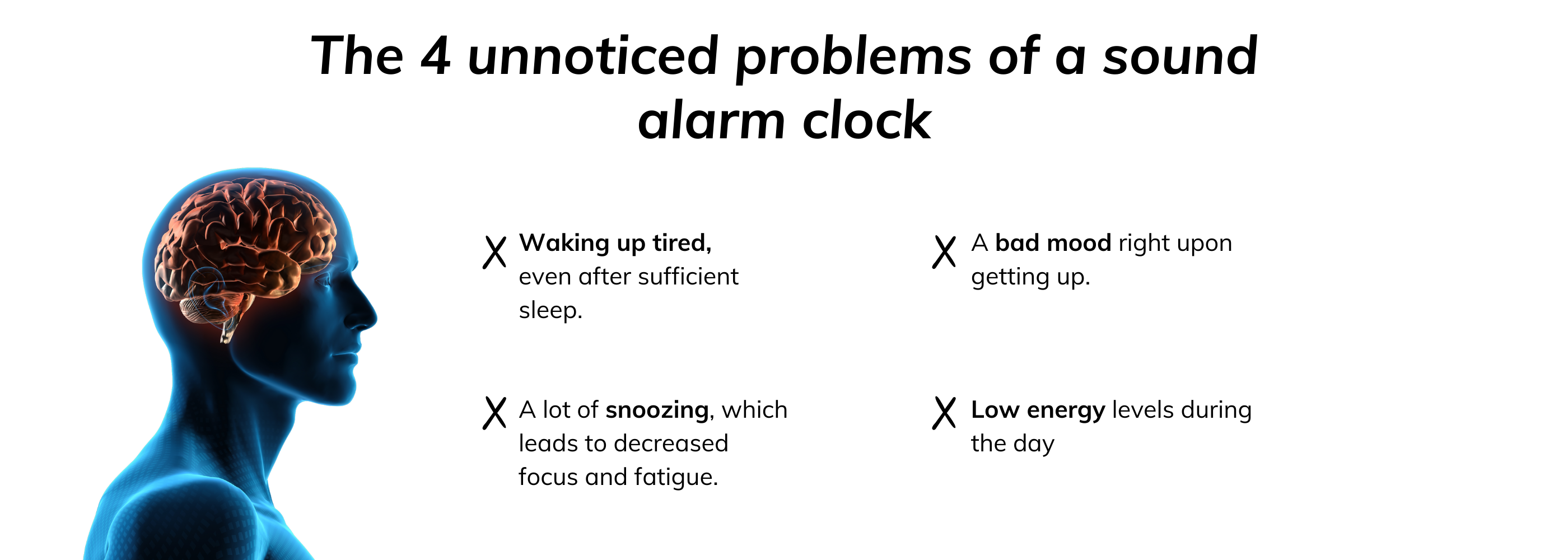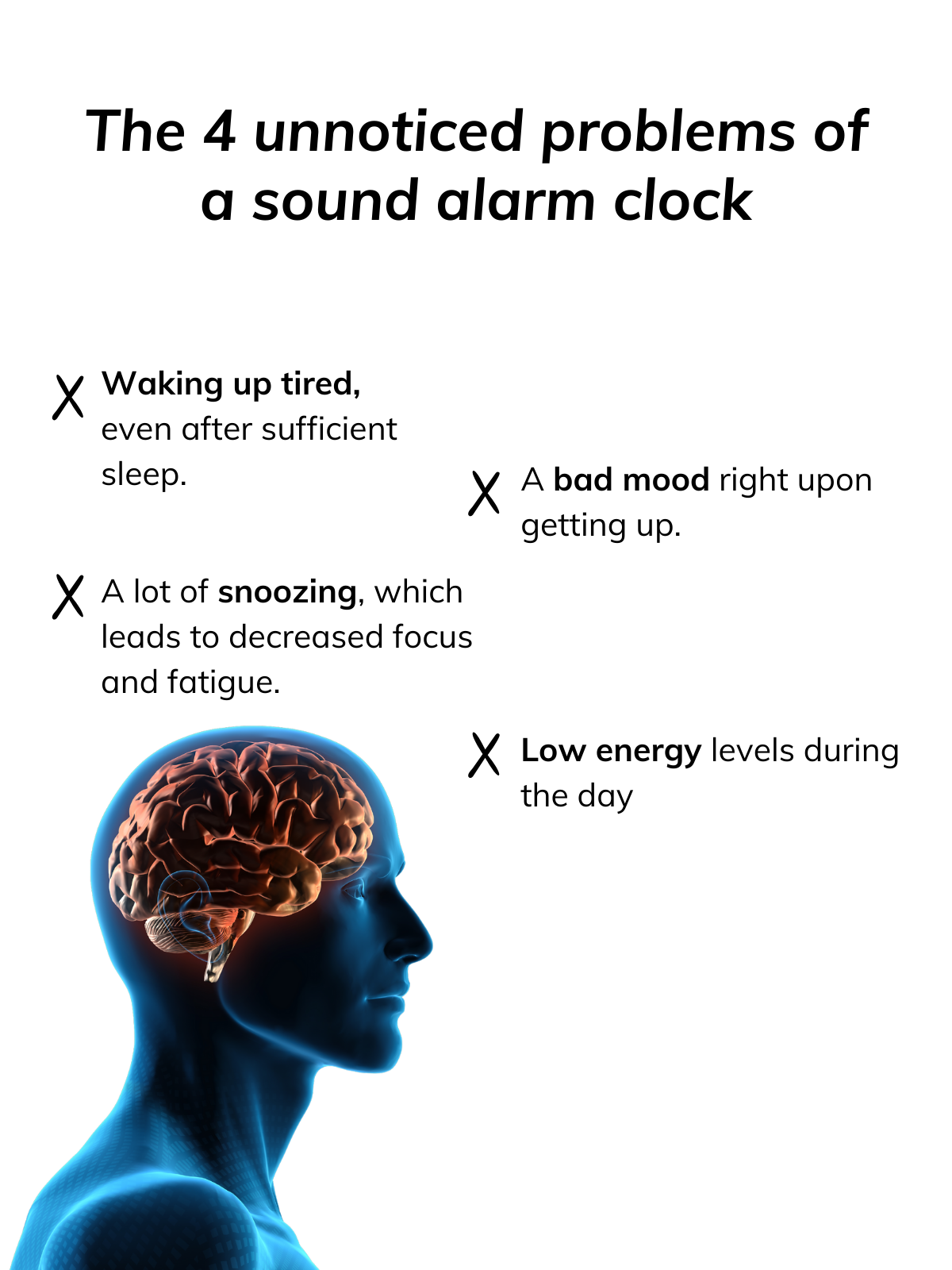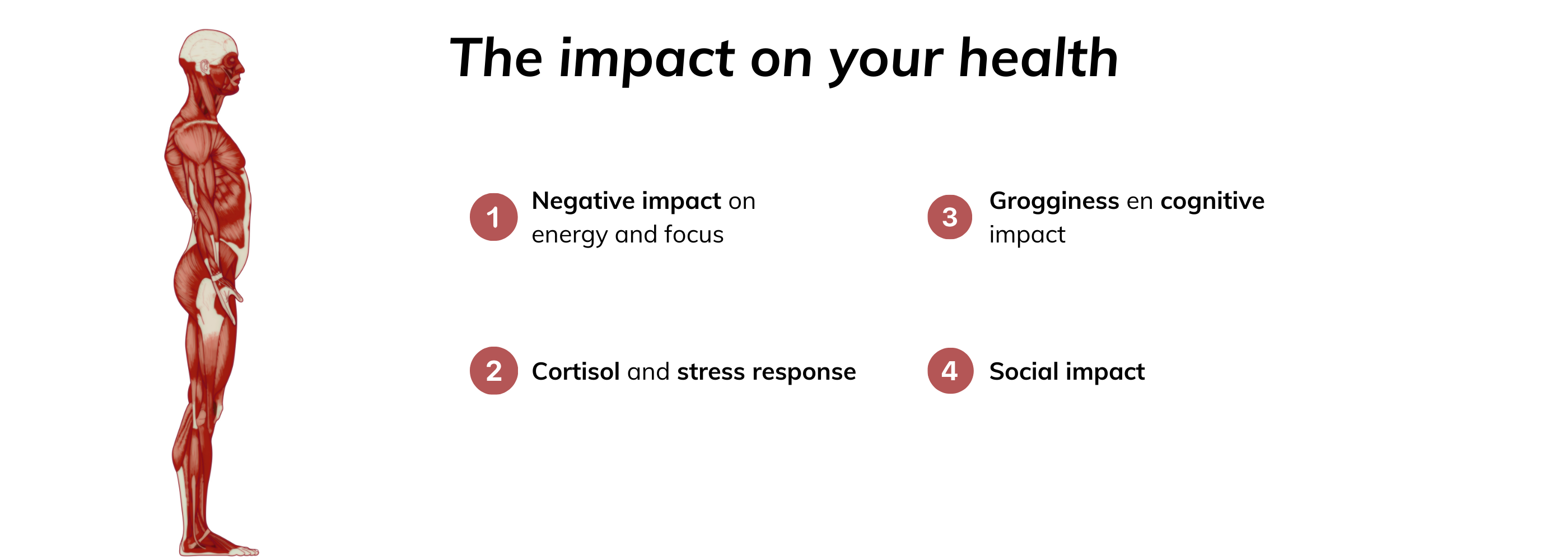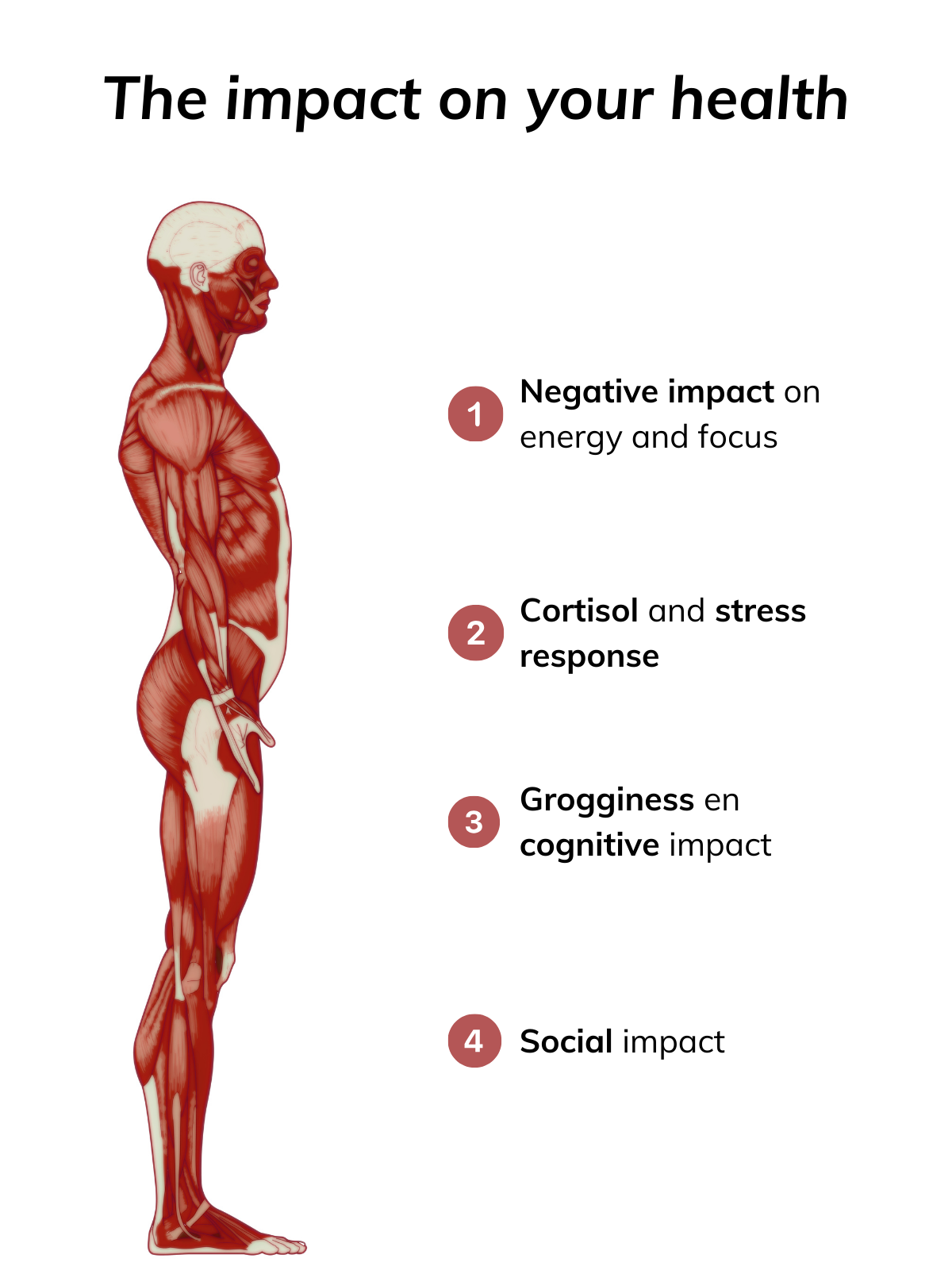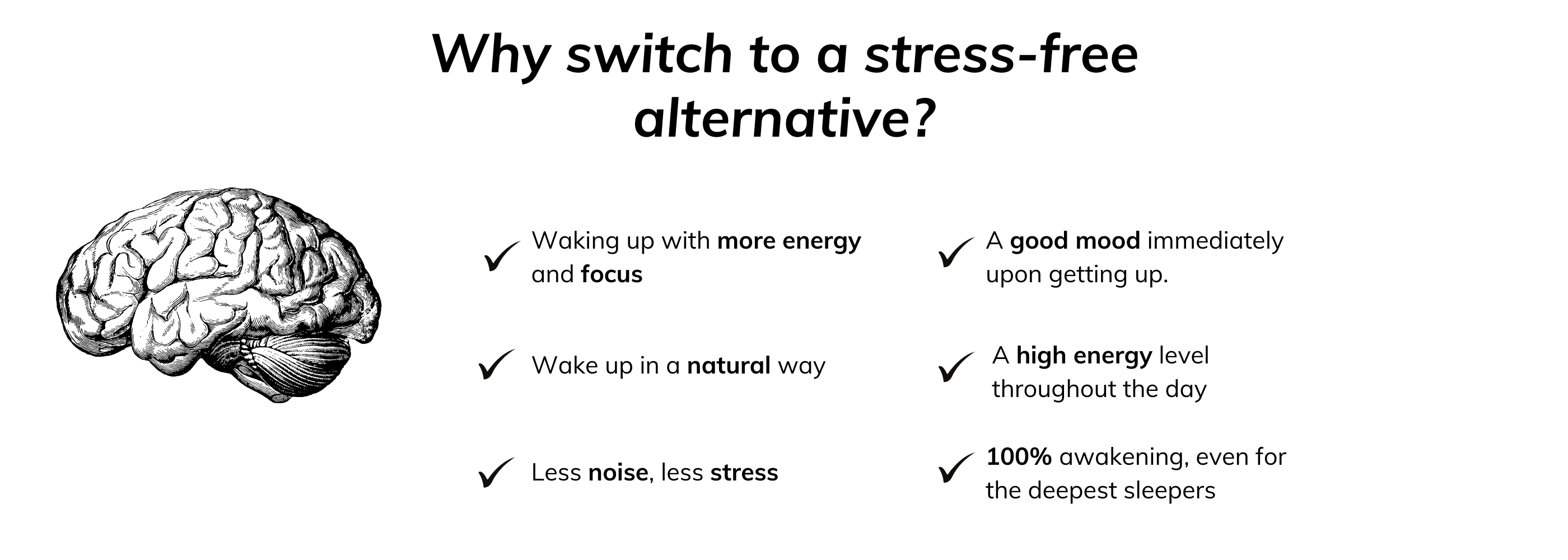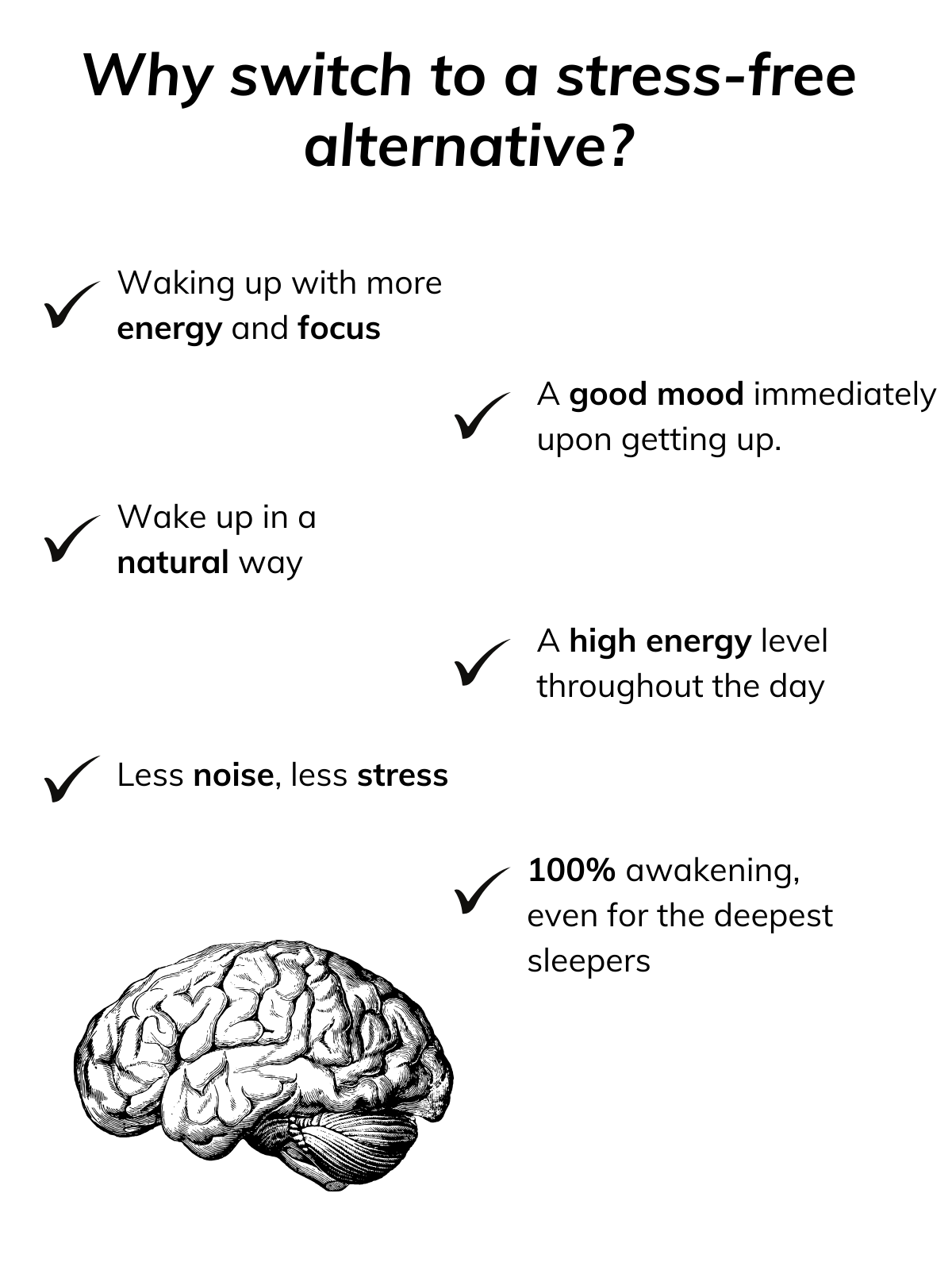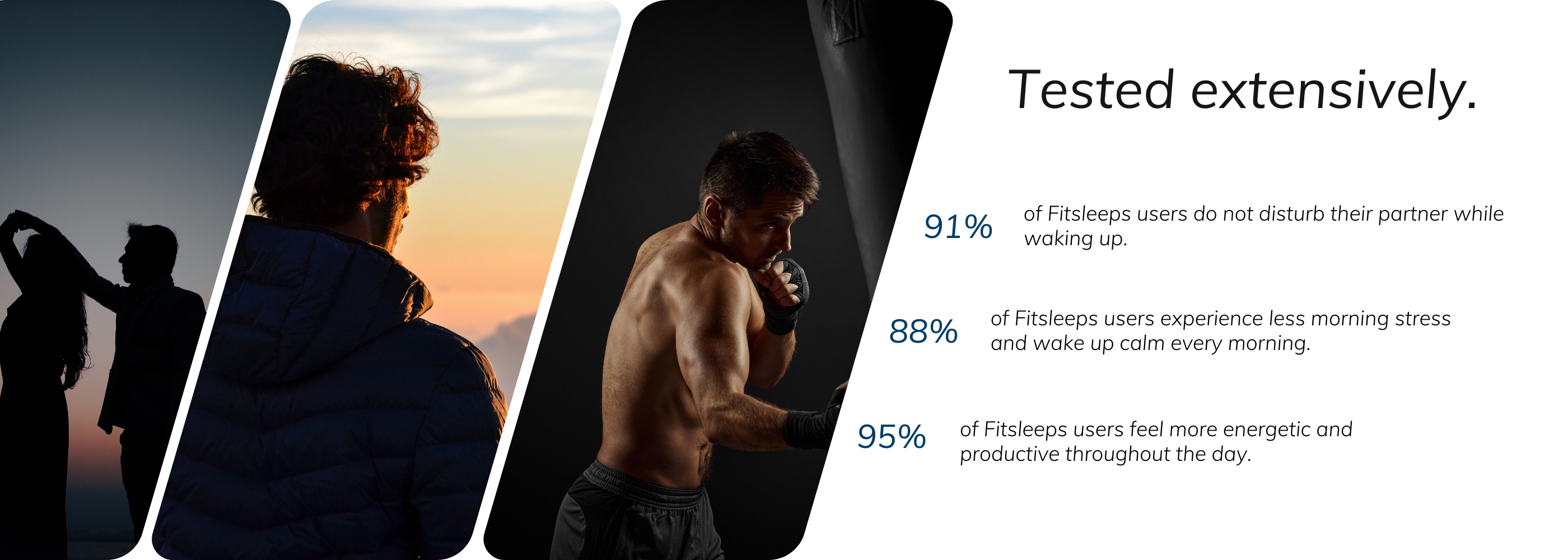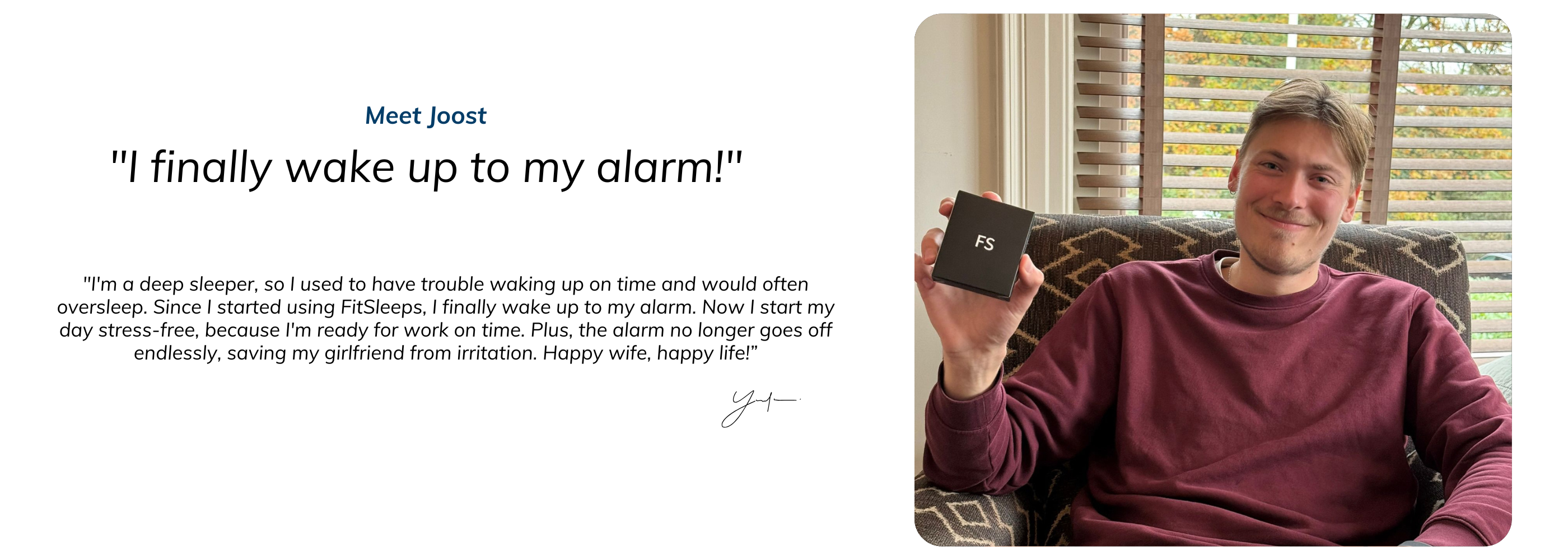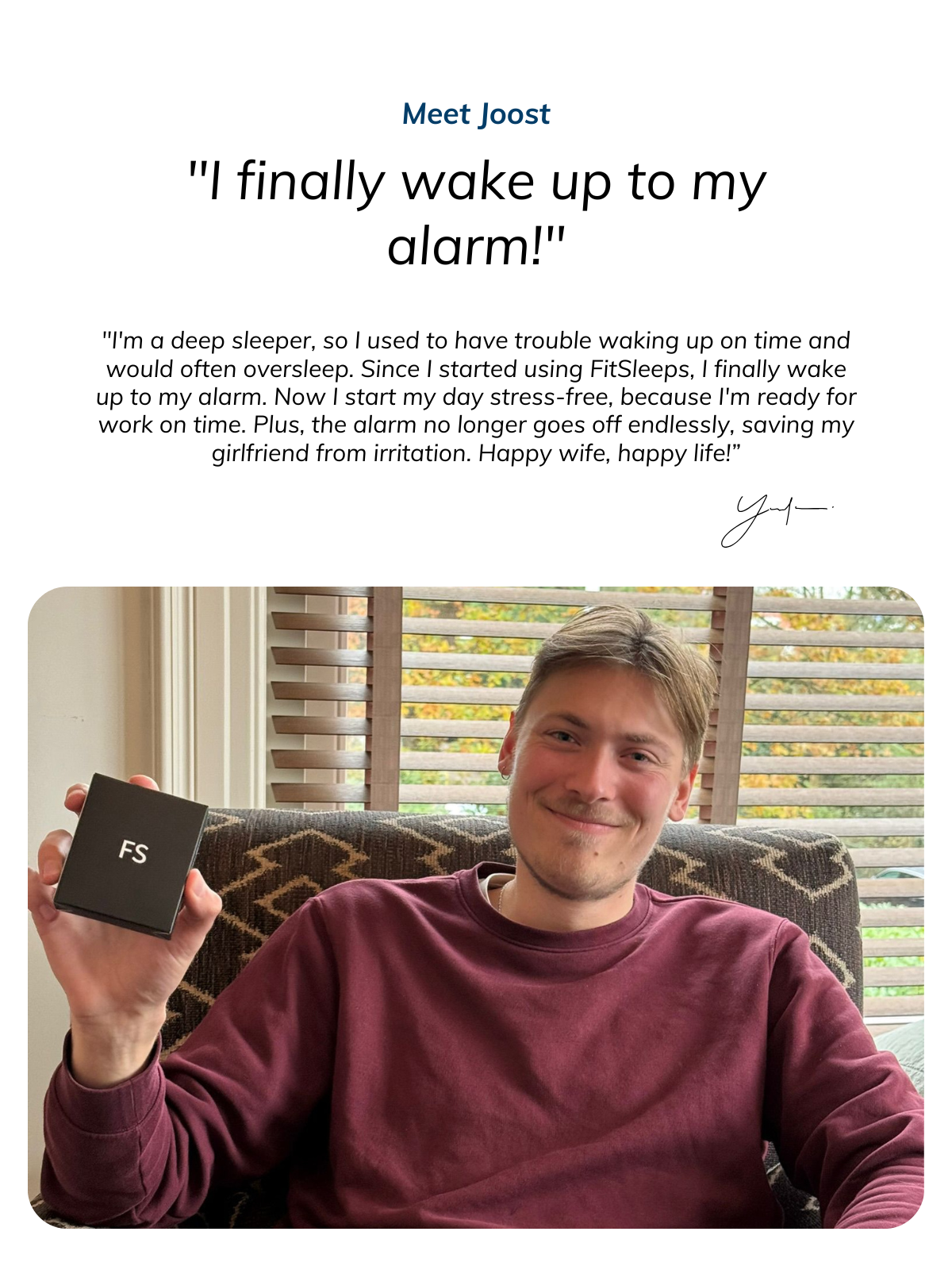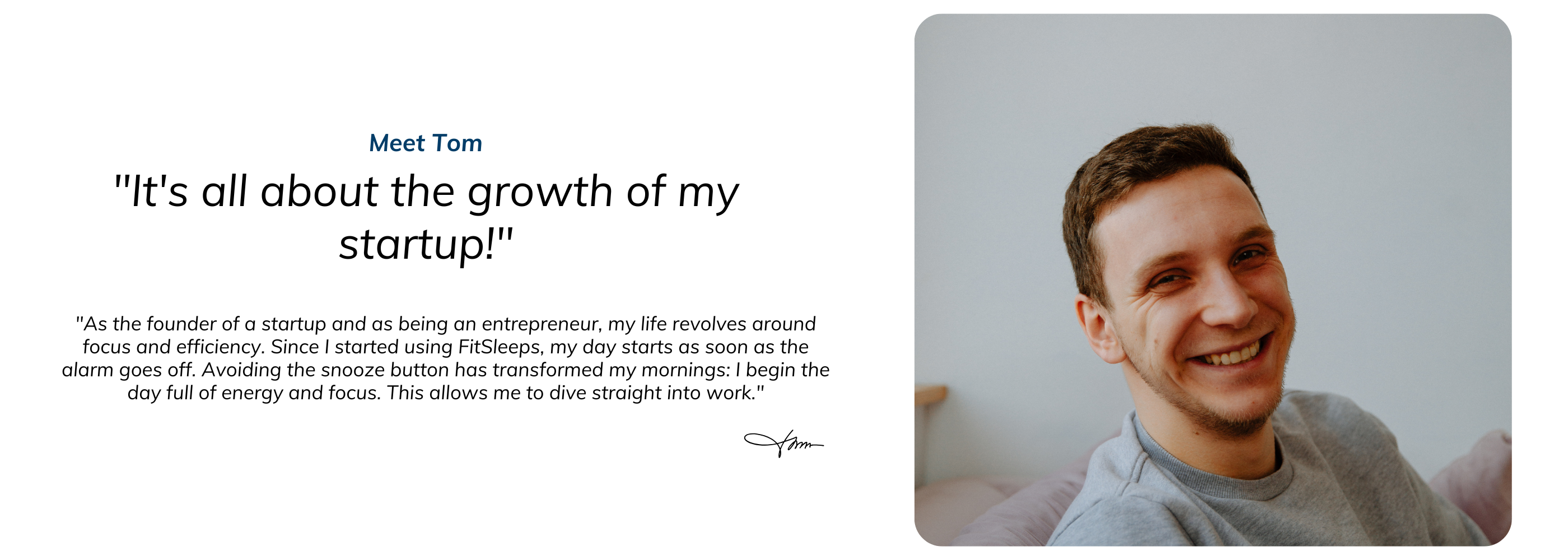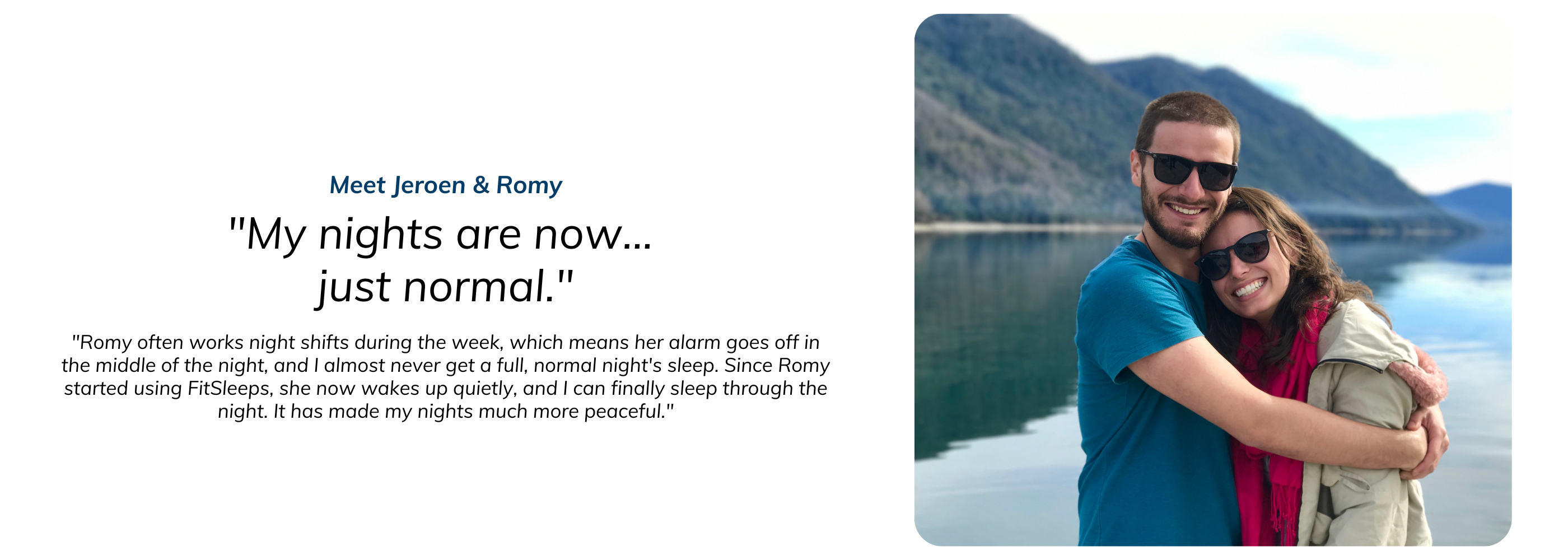Why Fitsleeps
The science behind vibrational alarm clocks
Sleep science continues to evolve. Each new discovery brings us closer to a deeper understanding of how we rest, recover and wake up. At FitSleeps, we use these insights to create technology that better matches your natural sleep rhythm. Together, we're building a future of better nights and more energetic mornings.
Do you wake up truly rested?
"Research shows that 8 out of 10 people wake up less well than they think, without realizing it."
Negative impact on energy and focus
Research shows that waking up to abrupt sounds, such as those from a traditional alarm clock, leads to increased cortisol levels, elevated blood pressure and even increased heart rate. This stress hormone, which normally helps regulate your alertness in the morning, skyrockets when suddenly startled by the alarm clock. This can negatively affect your energy, mood and cognitive focus throughout the day.
Cortisol and stress responses
A study by the National Institute of Industrial Health in Japan found that abrupt waking causes higher cortisol and blood pressure levels compared with a natural transition to wakefulness. This is due to the “fight-or-flight” response that loud noises activate in the early sleep stages.
Grogginess en cognitive impact
Research published in the Journal of the American Medical Association showed that waking up during deep sleep (as is often done by loud alarm clocks) causes deteriorated short-term memory and cognitive performance, similar to the effects of drunkenness. Fatigue can persist for up to two hours after waking.
Social impact
Evolutionarily, our brain still interprets loud alarm sounds as potential danger. This activates the amygdala, which amplifies feelings of fear and irritation immediately after waking up.
Research shows that waking up to abrupt sounds, such as those from a traditional alarm clock, leads to increased cortisol levels, elevated blood pressure and even increased heart rate. This stress hormone, which normally helps regulate your alertness in the morning, skyrockets when suddenly startled by the alarm clock. This can negatively affect your energy, mood and cognitive focus throughout the day.
A study by the National Institute of Industrial Health in Japan found that abrupt waking causes higher cortisol and blood pressure levels compared with a natural transition to wakefulness. This is due to the “fight-or-flight” response that loud noises activate in the early sleep stages.
Research published in the Journal of the American Medical Association showed that waking up during deep sleep (as is often done by loud alarm clocks) causes deteriorated short-term memory and cognitive performance, similar to the effects of drunkenness. Fatigue can persist for up to two hours after waking.
Evolutionarily, our brain still interprets loud alarm sounds as potential danger. This activates the amygdala, which amplifies feelings of fear and irritation immediately after waking up.
Waking up with more energy and focus
Studies show that a calm and gradual way of waking up can contribute to better energy levels and sharper focus. By avoiding sudden wake-ups, you avoid disruptions in your sleep cycle, resulting in feeling fitter and more alert throughout the day.
A good mood immediately upon getting up
Scientific research suggests that a quiet start to the day can positively affect your mood. Avoiding frightening noises helps keep your serotonin levels up, which contributes to feeling upbeat and relaxed when getting up.
Waking up naturally
Research shows that waking up naturally, without abrupt noises, provides a gradual transition from sleep to alertness. This process supports the natural release of cortisol, allowing your body to wake up in a healthy way. As a result, you experience less stress and start the day more calm and balanced.
A high energy level throughout the day
Research shows that a good start in the morning, free of stressful stimuli, contributes to stable energy levels throughout the day. By giving your body a chance to wake up naturally, you support the optimal functioning of your internal clock and energy balance.
Less noise, less stress
Studies show that avoiding loud, abrupt noises upon waking can lead to a reduction in stress hormones such as cortisol. This not only lowers the physical tension in your body, but also helps you start your day with more peace and clarity.
Studies show that a calm and gradual way of waking up can contribute to better energy levels and sharper focus. By avoiding sudden wake-ups, you avoid disruptions in your sleep cycle, resulting in feeling fitter and more alert throughout the day.
Scientific research suggests that a quiet start to the day can positively affect your mood. Avoiding frightening noises helps keep your serotonin levels up, which contributes to feeling upbeat and relaxed when getting up.
Research shows that waking up naturally, without abrupt noises, provides a gradual transition from sleep to alertness. This process supports the natural release of cortisol, allowing your body to wake up in a healthy way. As a result, you experience less stress and start the day more calm and balanced.
Research shows that a good start in the morning, free of stressful stimuli, contributes to stable energy levels throughout the day. By giving your body a chance to wake up naturally, you support the optimal functioning of your internal clock and energy balance.
Studies show that avoiding loud, abrupt noises upon waking can lead to a reduction in stress hormones such as cortisol. This not only lowers the physical tension in your body, but also helps you start your day with more peace and clarity.
Make the switch to a stress-free morning
The best for your health in the long term.


